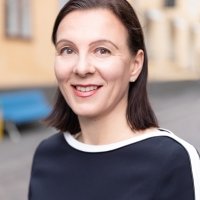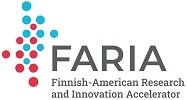Lessons from Europe: Deployment of Artificial Intelligence in the Public Sphere
Submit a question
The application of AI has been largely a private sector phenomenon. The public sector has advanced regulatory questions, especially in Europe, but struggled to find its own role in how to use AI to improve society and well-being of its citizens. The Wilson Center invites you to take a critical look at the use of AI in public service, examining the societal implications across sectors: environmental sustainability, finance, and health. Where are the biases in the design, data, and application of AI and what is needed to ensure its ethical use? How can governments utilize AI to create more equitable societies? How can AI be used by governments to engage citizens and better meet societal needs? The webinar aims to engage in a dialogue between research and policy, inviting perspectives from Finland and the United States.
This webinar has been organized in coordination with the Finnish-American Research & Innovation Accelerator.
Selected Quotes
Charlotta Collén
"There is an urgent need to think of democratic processes, and the ways in which we can engage citizens and people into these AI processes, so that we all feel safe in this space. AI is here to stay, it’s not going anywhere. It's with all of us and we should make the best of it."
"The cornerstones in a society that is employing AI for the good of people is trust and good governance… specifically trust towards public authority. These are quite big questions for any country to meet."
Laura Ruotsalainen
"At the moment, the development related to artificial intelligence and sustainable development is quite scattered… and limited, and therefore we have to join the forces of academia, companies, and then of course the public authorities."
"One of the biggest strengths of AI, in addition to being able to deal with a huge amount of very complex data, is that we are able to simulate different systemic changes without intervening with humans and the environment, so we can test the different decisions and implementations that we would like to do and see what would be the effect."
Aleksi Kopponen
"There are endless amounts of challenges regarding technical and semantic interoperability. It's not just regarding legislation; It's about the quality of data, existing data and most of all, incentives to take care that the data quality increases. So, it goes back to the incentives of who has the motivation to make sure that the data is available, and to be used and valuable for different organizations?"
"One of the key questions is what are we applying technology or AI for? Is it to control people or is it to create enormous amount of markets around people, or is it to strengthen people's well-being? We have these three proceedings, and the last one is what we are applying here in Finland."
Nataliya Shok
"AI leadership prevails within the global powers rivalry domain. When states compete, [they] want to win, not to be trusted. A side effect of state competition is a decreased trust in science and technology."
"Without clearly determined societal or citizen agency, and increased thoughtful citizen involvement, AI trust will be highly unlikely."
"We need to align national security needs to public policy needs in terms of maintaining sustainable trust development for new emerging technologies."
Moderator

Panelists

Director, Hanken School of Economics



Independent Analyst
Hosted By

Science and Technology Innovation Program
The Science and Technology Innovation Program (STIP) serves as the bridge between technologists, policymakers, industry, and global stakeholders. Read more


History and Public Policy Program
A leader in making key foreign policy records accessible and fostering informed scholarship, analysis, and discussion on international affairs, past and present. Read more


Global Europe Program
The Global Europe Program is focused on Europe’s capabilities, and how it engages on critical global issues. We investigate European approaches to critical global issues. We examine Europe’s relations with Russia and Eurasia, China and the Indo-Pacific, the Middle East and Africa. Our initiatives include “Ukraine in Europe”—an examination of what it will take to make Ukraine’s European future a reality. But we also examine the role of NATO, the European Union and the OSCE, Europe’s energy security, transatlantic trade disputes, and challenges to democracy. The Global Europe Program’s staff, scholars-in-residence, and Global Fellows participate in seminars, policy study groups, and international conferences to provide analytical recommendations to policy makers and the media. Read more


Environmental Change and Security Program
The Environmental Change and Security Program (ECSP) explores the connections between environmental change, health, and population dynamics and their links to conflict, human insecurity, and foreign policy. Read more


Kennan Institute
After more than 50 years as a vital part of the Wilson Center legacy, the Kennan Institute has become an independent think tank. You can find the current website for the Kennan Institute at kennaninstitute.org. Please look for future announcements about partnership activities between the Wilson Center and the Kennan Institute at Wilson Center Press Room. The Kennan Institute is the premier US center for advanced research on Eurasia and the oldest and largest regional program at the Woodrow Wilson International Center for Scholars. The Kennan Institute is committed to improving American understanding of Russia, Ukraine, Central Asia, the South Caucasus, and the surrounding region through research and exchange. Read more

